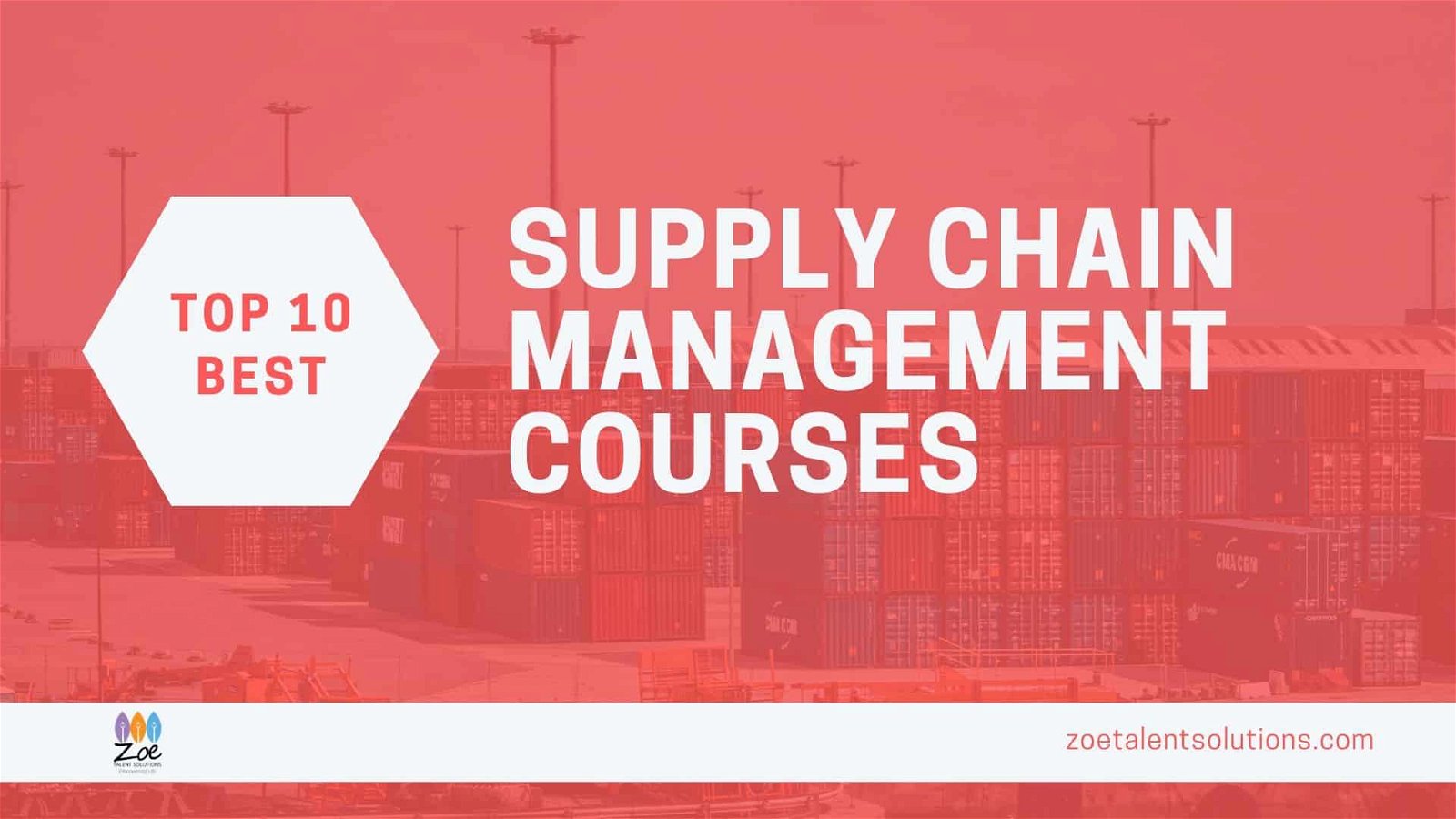Are you interested to build a roaring career in supply chain management?
Supply chain management plays bedrock in the success of any business or organization whether small or large to successfully procure, plan, store, stock and distribute the desired products with 100% customer satisfaction.
Here is the top 10 best supply chain management courses list to enroll in today and bloom your career as a supply chain manager to become more productive at your job workplace.
1. Supply Chain Management
This training course or program will teach and equip you with the most basic supply chain management best practices and techniques from finance to logistics and the successful delivery of the products and make ensure the effectiveness while maximizing the customer experience and value.
2. Materials and Supply Chain Management
This training course or the program will equip you with the fundamentals of material supply chain management which will enable you to understand and apply the best models to maximize the performance.
3. Warehousing, stores & stock control management
This training course or program will teach you a holistic approach to looks after the warehouse, stores and better stock control management to maximize efficiency.
4. Managing and improving warehouse operations
This training course or program dig a deeper which will show the warehouse/purchasing managers and supervisors to explore opportunities in maximizing warehouse operations efficiency which will result in improved warehouse operations.
5. Purchasing Professional
This training course or program will help seniors purchasing professionals to become more aware of their role and job function. It will enable you to make more informed decisions while purchasing the products contributing to the overall good performance.
6. Inventory Planning and Stock Control
This training course or program will teach you all aspects of the inventory planning and stock control to effectively manage your inventory stock and maximize the efficiency with key competency building.
7. Successful Fleet and Transport Management
This training course or program caters to all aspects of successful fleet and transport management including strategizing, resource procurement, safety measures and budgeting techniques to equip participants with the necessary competencies to commendably well in this field.
8. Logistics and Distribution Management
This training course or program will teach you how to successfully manage your logistics and distribution management from fulfilling customer demands, ordering and managing inventory, controlling inbound and outbound shipments, reducing costs, saving time, and meeting company objectives. it will also show you how to achieve success through a combination of strategies and tactics.
9. Production Management and Material Requirements Planning
This training course or program will show you how to effectively manage production and material requirements planning in a much better way to maximize the over efficiency and competency which will contribute to the company success and profit.
10. Negotiation Strategies for Better Purchasing Value
This robust training course or program is an ideal blend of practical and theoretical learning to sculpt you into a master of skilful negotiations tactics. These techniques will undoubtedly empower you to gain more revenue and acquire better purchasing value for the products that you market.
Check our Procurement, Logistics & Supply Chain Management Courses










![Saudi Oil Industry Key Stats Unveiled [2024] 12 Saudi Oil Industry Key Stats](https://zoets.b-cdn.net/wp-content/uploads/2024/02/h.jpg)






